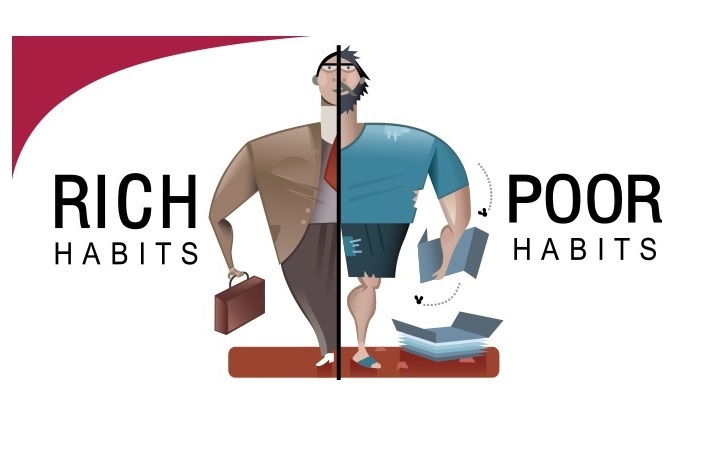For years, we’ve been told to follow certain money rules like the gospel. Save 10% of your income. Never use credit cards. Always buy, never rent. But here’s the thing: it’s 2025, and the world has changed fast.
Smart savers are rethinking everything. The job market is shifting, inflation is unpredictable, and the tools available to manage money are far more sophisticated than ever before. What once worked in our parents’ or grandparents’ time might now be holding you back.
If you’re still clinging to old-school financial advice, you could be missing out on better opportunities. Here are six outdated money rules that savvy savers are breaking and why you should consider breaking them, too.
1. Old Rule: Always Save 10% of Your Income
The “10% rule” has been around for decades, but today’s financial climate makes it feel overly simplistic. With rising living costs, unstable job markets, and ambitious goals like early retirement or financial independence, saving just 10% isn’t always enough or realistic.
Many smart savers in 2025 have adopted a more flexible approach. Instead of focusing on a set percentage, they prioritize aggressive saving when possible and give themselves grace during tighter months. They use budgeting tools to adapt their strategy in real-time, often working toward goals like saving 30–50% of income during peak earning years, then dialing back when needed.
The takeaway: Don’t follow arbitrary numbers. Focus on saving consistently and increasing contributions as your income grows or expenses drop.
2. Old Rule: Renting Is Wasting Money
For decades, owning a home was seen as the ultimate financial milestone. But with property taxes, maintenance, fluctuating interest rates, and unpredictable housing markets, owning isn’t always the smartest move.
In 2025, savvy savers are increasingly choosing to rent, not out of necessity but strategy. Renting provides flexibility, lower upfront costs, and frees up capital to invest elsewhere. Many are funneling money that would have gone toward a down payment into high-yield investments, index funds, or business ventures that offer greater long-term returns.
The takeaway: Homeownership isn’t automatically the best financial choice. Sometimes, mobility and liquidity are worth more than a mortgage.
3. Old Rule: Pay Off All Debt ASAP (Even Low-Interest Ones)
The instinct to be debt-free is understandable, but in 2025, not all debt is bad. With inflation outpacing interest rates in some areas, low-interest debt (like certain student loans or mortgages) can actually work in your favor.
Instead of rushing to pay off “cheap” debt, smart savers are leveraging it to keep more cash on hand. That liquidity allows them to invest, build emergency funds, or seize time-sensitive financial opportunities. The math is simple: if your investments earn 7–10% annually and your debt only costs 3%, aggressively paying it down may slow your wealth growth.
The takeaway: Evaluate debt strategically. If it’s low-interest and manageable, don’t rush to eliminate it at the cost of missed growth.

4. Old Rule: Always Have a 6-Month Emergency Fund in Cash
An emergency fund is essential, but keeping six months’ worth of expenses in a regular savings account might not be the most efficient use of money in 2025.
High-yield online savings accounts are better than traditional bank accounts, but even those lag behind inflation. That’s why many modern savers are adopting a hybrid model: keeping a smaller cash reserve for immediate needs and placing the rest in low-risk, high-liquidity investments like I-bonds, money market funds, or short-term ETFs. This approach ensures access to funds when needed while still allowing your safety net to grow.
The takeaway: An emergency fund should be accessible, but that doesn’t mean it has to sit idle in a zero-growth account.
5. Old Rule: Credit Cards Should Be Avoided
The fear of credit cards is rooted in poor money management, not the cards themselves. In 2025, responsible credit card use is a powerful tool for smart savers.
Rewards programs, cash-back offers, travel points, and fraud protection are just the beginning. Savers who use cards wisely pay their balances in full each month, track expenses through budgeting apps, and even rotate cards based on reward categories to maximize benefits. Some households earn hundreds or even thousands per year just by routing regular expenses through rewards cards.
The takeaway: Credit cards are not the enemy. Used wisely, they’re a strategic part of modern financial planning.
6. Old Rule: Stick to a Strict Monthly Budget
Rigid monthly budgets worked when incomes and expenses were predictable. But life in 2025 is dynamic—gig work, freelance projects, unexpected bills, and fluctuating markets all make fixed budgets harder to follow.
Instead, more people are turning to adaptive budgeting. This approach tracks categories in real-time and allows for rolling adjustments. Tools like YNAB (You Need a Budget) and Monarch Money help users pivot their spending mid-month, reallocate funds, and budget based on goals, not just calendar dates. By budgeting fluidly, savers stay in control without feeling boxed in.
The takeaway: Flexibility doesn’t mean a lack of discipline. It means your budget moves with you, not against you.
Evolve or Fall Behind
Old money rules were created for a different economy. Today, the smartest savers are focused not just on being frugal but on being adaptive. They use technology, question outdated assumptions, and make decisions based on what works now, not what used to work 30 years ago.
Breaking these so-called rules isn’t about being reckless. It’s about being financially fluent. If you’re still following outdated advice to the letter, it might be time to rethink your strategy.
Which old money rule are you still following or have recently broken? Have you seen any improvements or setbacks from doing things differently?
Read More:
Saving Tips That Only Sound Good Until You See the Fine Print
14 Eye‑Opening Stats About Saving Money That Could Change Your Paycheck
Riley is an Arizona native with over nine years of writing experience. From personal finance to travel to digital marketing to pop culture, she’s written about everything under the sun. When she’s not writing, she’s spending her time outside, reading, or cuddling with her two corgis.
























